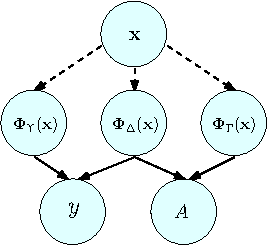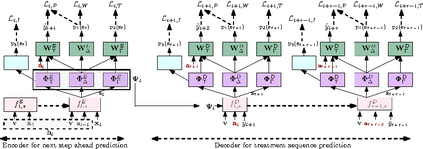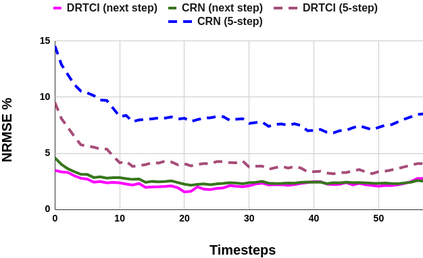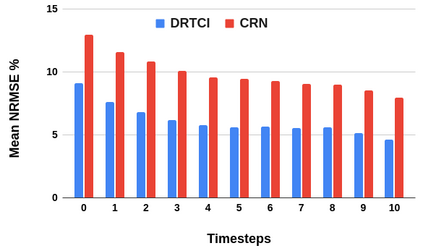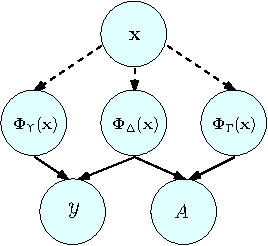Medical professionals evaluating alternative treatment plans for a patient often encounter time varying confounders, or covariates that affect both the future treatment assignment and the patient outcome. The recently proposed Counterfactual Recurrent Network (CRN) accounts for time varying confounders by using adversarial training to balance recurrent historical representations of patient data. However, this work assumes that all time varying covariates are confounding and thus attempts to balance the full state representation. Given that the actual subset of covariates that may in fact be confounding is in general unknown, recent work on counterfactual evaluation in the static, non-temporal setting has suggested that disentangling the covariate representation into separate factors, where each either influence treatment selection, patient outcome or both can help isolate selection bias and restrict balancing efforts to factors that influence outcome, allowing the remaining factors which predict treatment without needlessly being balanced.
翻译:评估病人替代治疗计划的医务专业人员往往遇到时间不一的混乱,或共同变化影响未来的治疗任务和病人结果。最近提议的反事实经常网(CRN)将时间不一的混乱归咎于时间不一的混乱,利用对抗性培训来平衡病人数据的反复历史表现;然而,这项工作假定,所有时间的不同共变都相互混杂,从而试图平衡国家的全面代表性。 鉴于事实上可能混杂的实际的共变组合一般是未知的,最近关于静态、非时空环境中反事实评价的工作表明,将共变代表分成不同的因素,其中每一个影响治疗选择、病人结果或两者,都能够帮助分离选择偏差,并将平衡的努力限制在影响结果的因素上,使预测治疗的其余因素不无必要地平衡。

